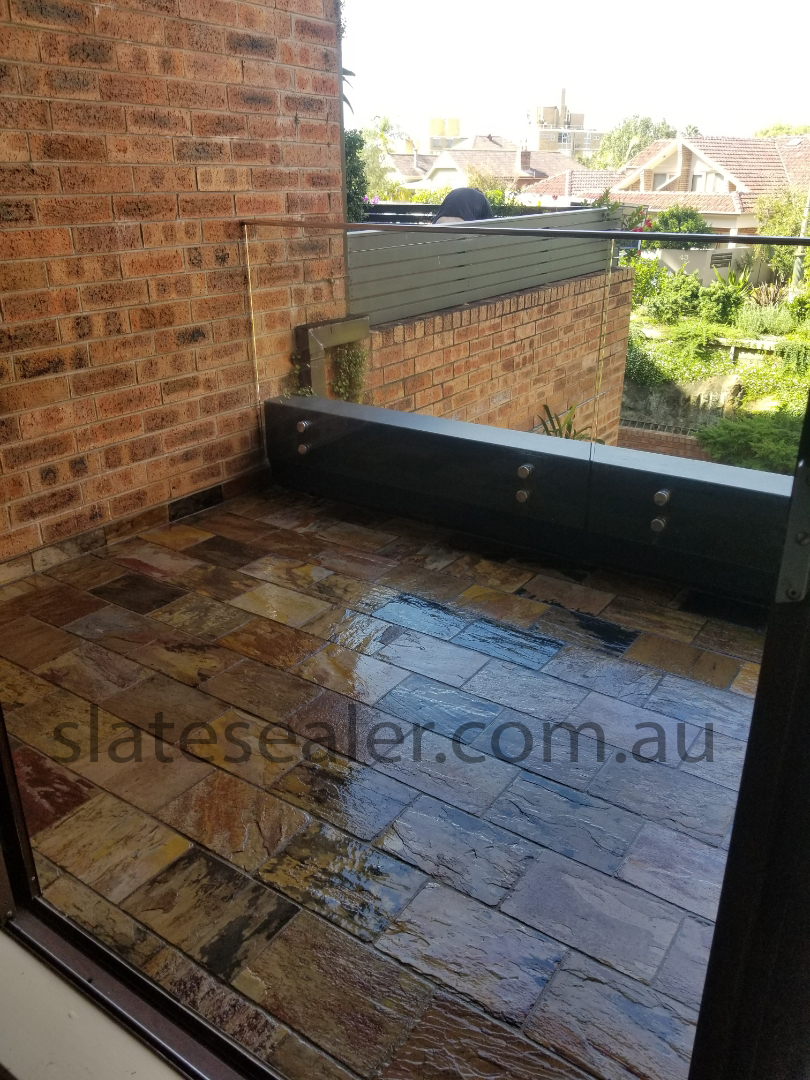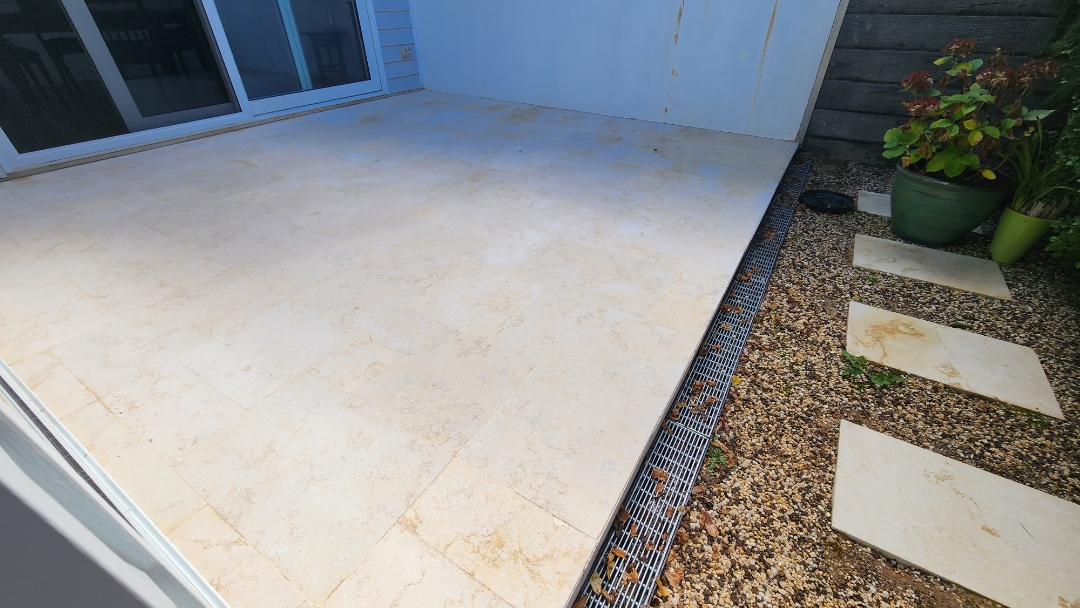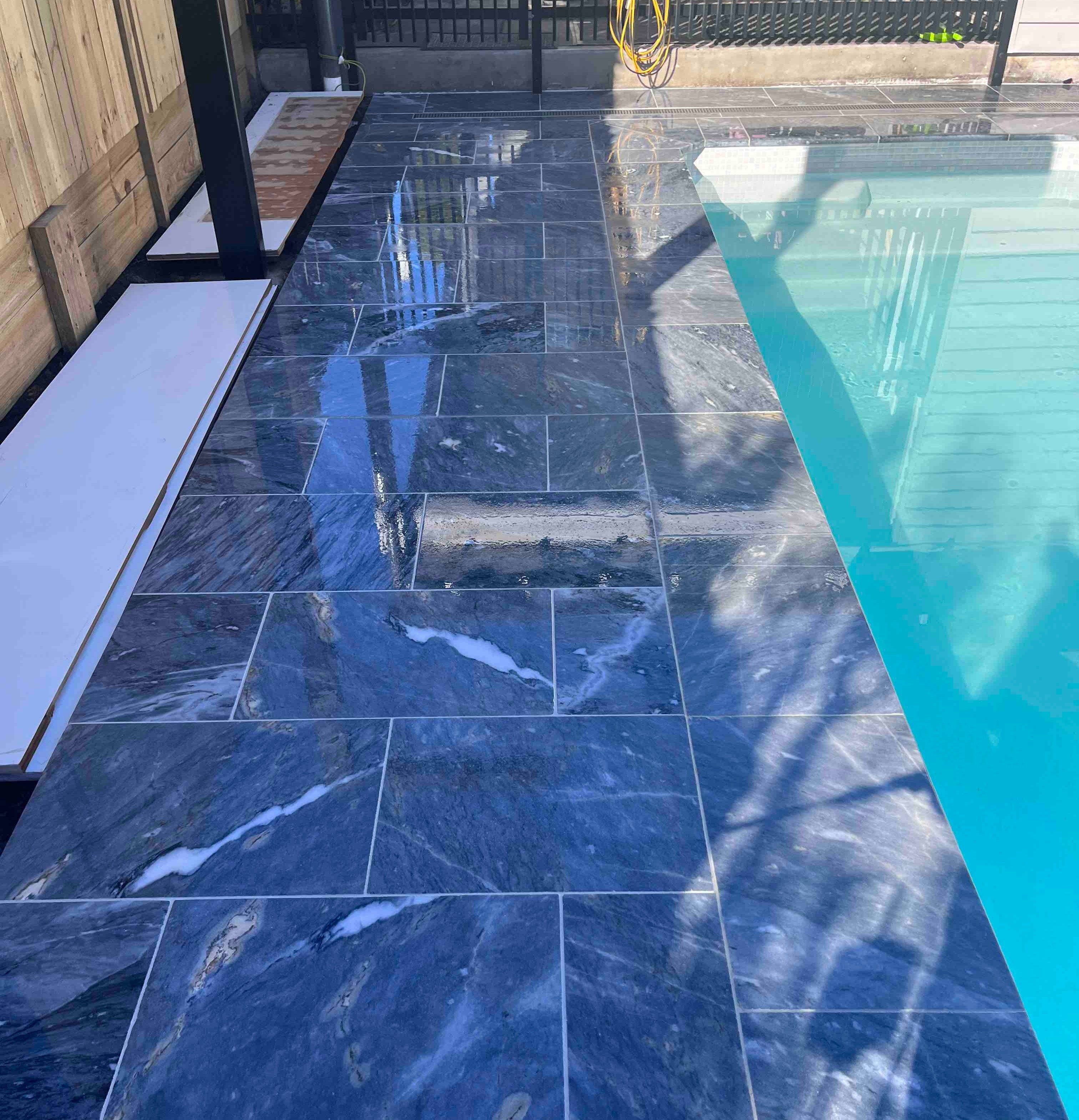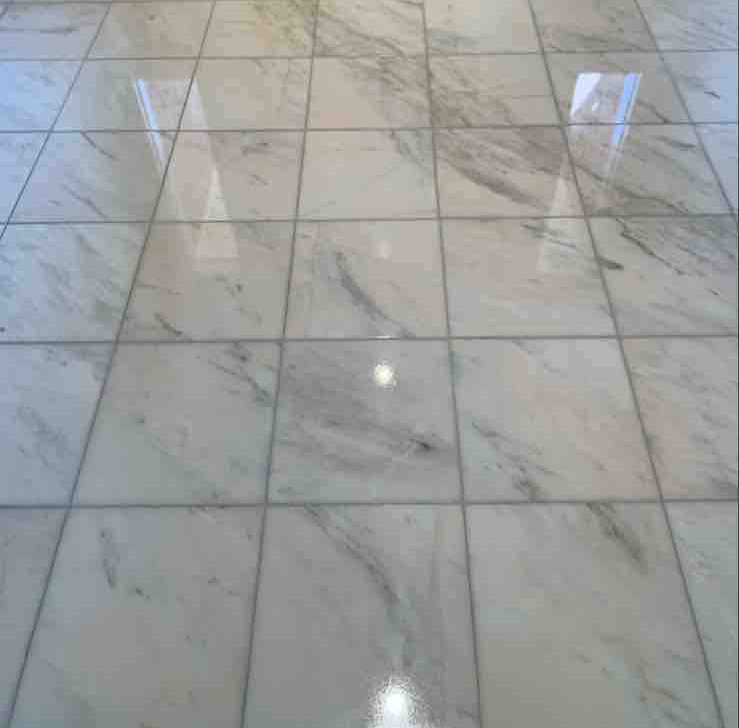- Slate Sealer Cataract
- Penetrating Slate Sealer Cataract
- Outdoor Slate Sealer Cataract
- Non Slip Sealer for Slate Cataract
- Long Lasting Slate Sealer Cataract
- Impregnating Slate Sealer Cataract
- Breathable Slate Sealer Cataract
- Best Slate Sealer Cataract
- Sealing Slate Pavers Cataract
- Sealing Slate around Pool Cataract
- Sealing Slate Kitchens Cataract
- Sealing Slate Bathrooms Cataract
- Sealing Slate Showers Cataract
- Sealing Slate Benchtops Cataract
- Protecting against Acid Attack
- Protecting against Salt Attack
- Protecting against Efflorescence
- Why Slate?
- What is Slate?
- What is Efflorescence?
- Maintenance & Care Cataract
- Slate Stains Removal Cataract
- Efflorescence Removal Cataract
- Slate Available Finishes Cataract
Removing Stains from Slate Cataract - Wollongong
Prevention is always preferable to treatment, so if you've properly sealed your slatestone in Cataract, you should be able to easily wipe away any potential stains, as long as they haven't been left to set for too long.
It's crucial to avoid using anything acidic in Cataract, such as vinegar or citrus, as it can cause etching or damage to your slatestone.
If you encounter a potential stain in Cataract, you can attempt the following solutions.
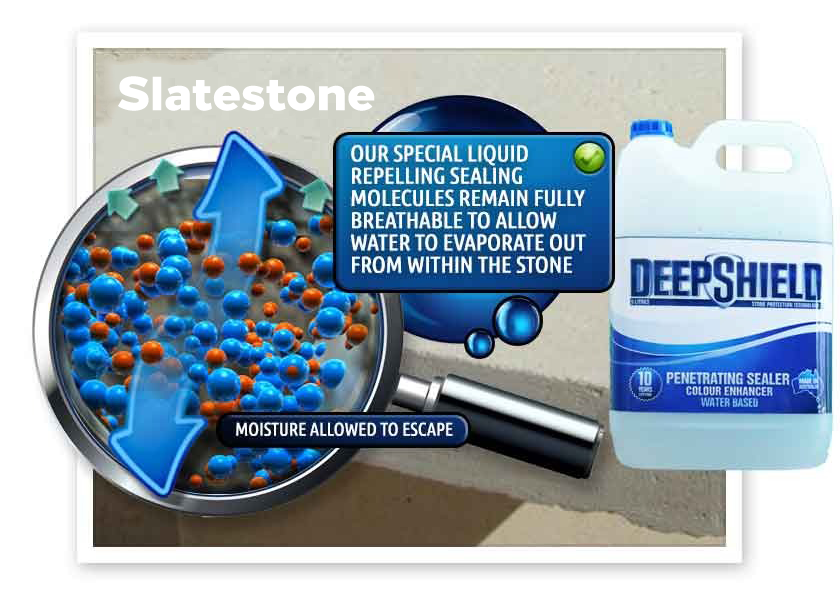
Use a commercial poultice product designed for slatestone in Cataract.
A poultice typically consists of ground chalk (whiting) and hydrogen peroxide, which can be purchased from hardware stores in Cataract. Some variations may utilize a different chemical. Follow the instructions provided with the product:
- Wet the poultice with distilled water.
- Apply the poultice to the stain or affected area.
- Allow it to remain in place for 48 hours to dry. During this time, it will absorb into the slatestone.
- Rinse off the poultice. The stain should have vanished.
- Reseal the slatestone with a penetrating sealer
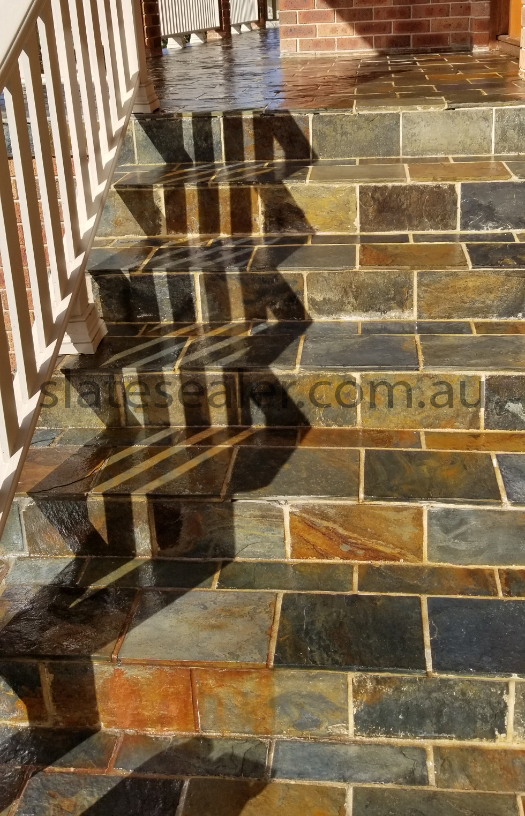 Cleaning Slatestone Countertops in Cataract
Cleaning Slatestone Countertops in Cataract
Avoid using acidic substances like vinegar and lemon juice on slatestone countertops in Cataract.
Always opt for pH neutralcleaning products when cleaning slatestone surfaces in Cataract.
Due to the calcium content and porous nature of slatestone, using acidic or harsh cleaners can potentially scratch and harm the surface.
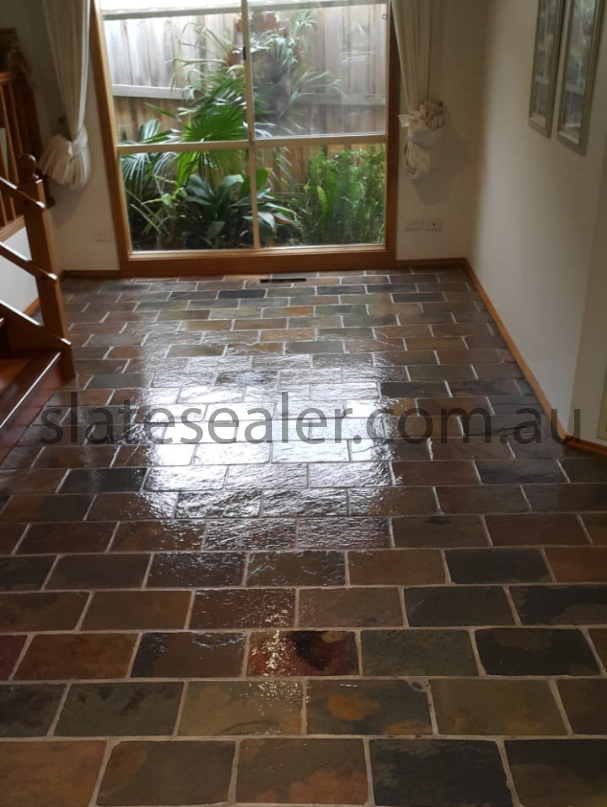
How to Clean Slatestone Floors in Cataract
- In a bucket in Cataract, mix warm water with a pH neutral floor cleaner
- Add 1 cup of cornflour to the mixture.
- Stir the mixture vigorously.
- Use this solution to mop the slatestone floor.
The cornflour aids in removing marks and stains from slatestone by drawing out substances from the porous surface.
If the aforementioned methods fail to yield satisfactory results in Cataract, consider contacting a professional cleaning company equipped with suitable equipment and solutions.
Tile Cleaners Australia is Australia's stands as the premier tile care provider in Australia, offering services such as tile and grout cleaning, tile sealing, tile stripping and sealing, tile regrouting, grout color sealing, and minor tile repairs.
Please note that while we provide information in good faith and believe it to be appropriate and reliable, conditions may vary widely and are beyond our control. Therefore, this information is provided without liability or responsibility on our part. It is the recipient's responsibility to determine the suitability of the information for their situation. When in doubt, always test any process in an inconspicuous area before widespread application.
